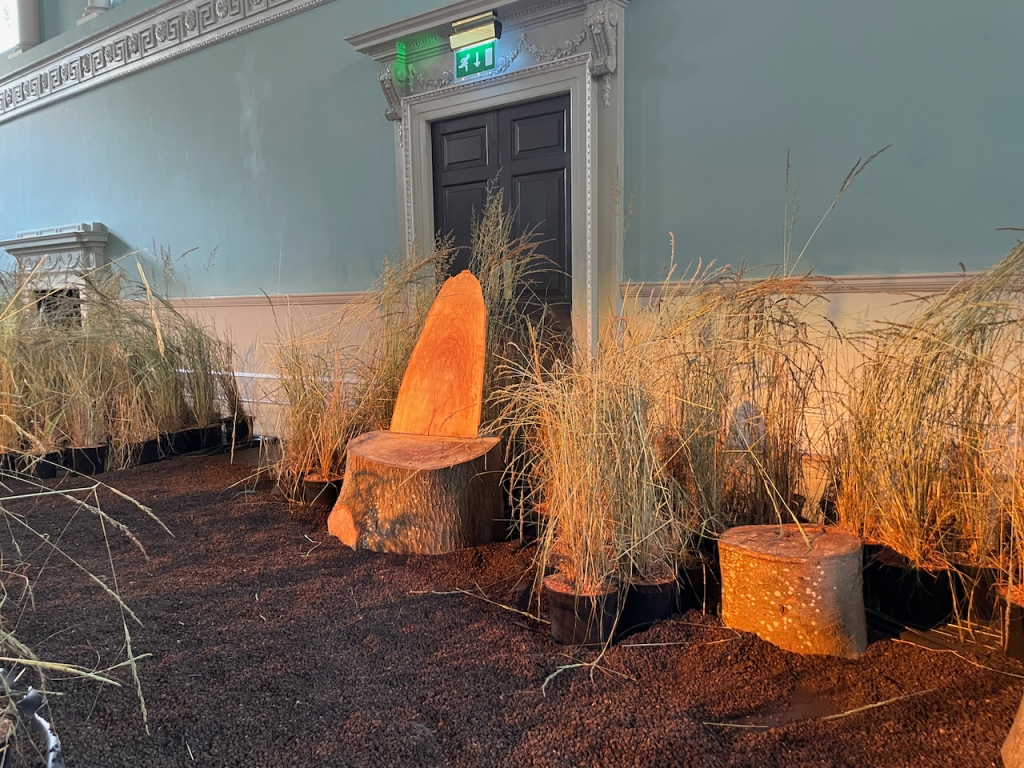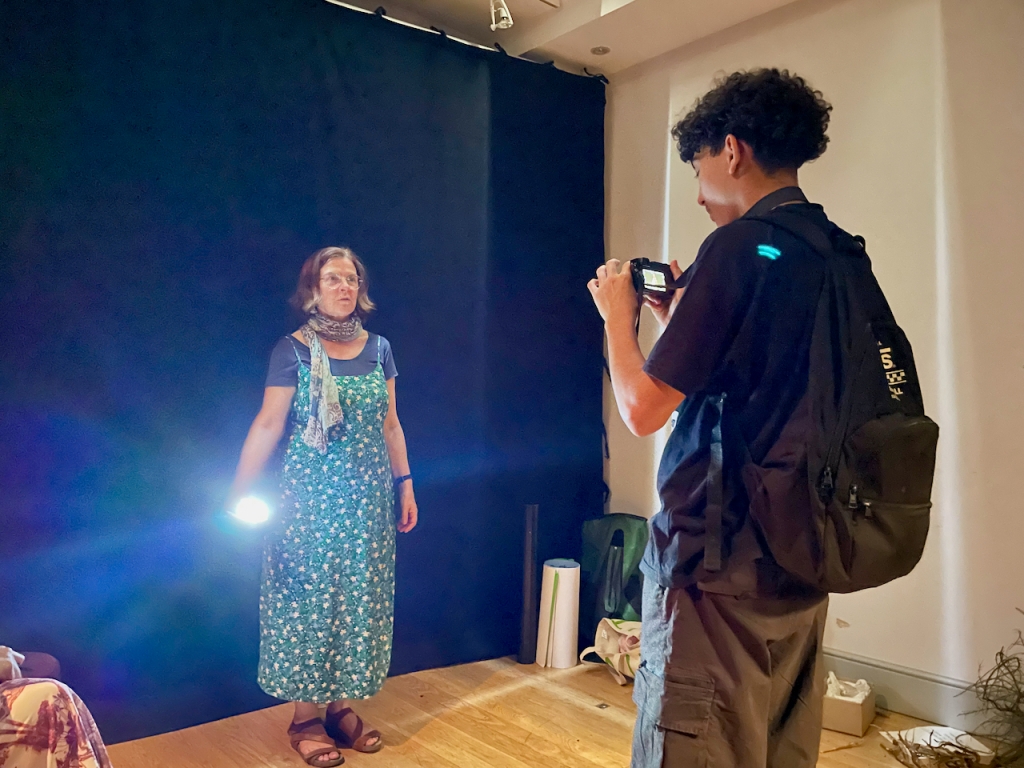For ten years, a group of artists and educators have set up a summer camp in the centre of Bath and invited children to come and play with them, creatively, exploring nature and humanity’s place within it. The invitation changes according to who is involved, where the activity is happening and what resources are available. One year, a thousand butterflies floated through Bath Abbey, another, a huge white rabbit sat in Queen’s Square; during the pandemic, the event went online.
In 2023, they have transformed the historic Assembly Rooms into a series of installations, exhibitions and workshops spaces that are free and open to all. The ballroom is a prairie of grasses turning into hay; elsewhere, dead box bushes hang from the ceiling, a beaver’s home stands in a silver river, a ceramic moon glows in the dark… it’s beautiful, intriguing and thought-provoking.









This project is now known as the Forest of Imagination, but it has had other names and forms in the past. Its roots stretch back more than 20 years, to Penny Hay’s appointment as visiting lecturer in arts education at Bath Spa University. She is now Professor of Imagination—perhaps the only one in the world?—and she still shares her time between the university and the House of Imagination, the charity set up to host this work. All of it is fuelled by Penny’s unwavering commitment to children’s creative learning, to art and to nature. The Forest of Imagination is an expression of her belief that we are all artists. (I would say we can all be artists, because the freedom to choose matters, but that’s another discussion.) Andrew Grant has been the other driving force behind the project, bringing innovative ideas and huge experience of environmentally sensitive landscape design and architecture to the Forest of Imagination. Around their partnership, many other artists, designers, campaigners and educators have been able to find a place.
There are many things I like about the Forest of Imagination, but I’ll just touch on two aspects now. First, this is a journey. Each event, each activity is new, building on what has been done and learned before, and responding to today’s needs and opportunities. It grows like a forest, composed of many separated but interdependent lives, always changing, always itself. It depends on the shared purpose of hundreds of people, not only artists and educators, but public bodies, businesses, donors, volunteers, activists and more. It raises funds and help in kind, fast and at scale, but always for an immediate public purpose, not its own needs. Penny Hay is an exceptional producer who mobilises other people’s energy, passion and creativity, weaving disparate elements into a coherent whole where everyone’s part is valued but none dominates.
In short, the House of Imagination shows just what can be achieved by adapting flexibly to changing conditions when you have a diamond-sharp vision of what you want to achieve.






And that vision is the second crucial thing. At the heart of everything here is an unwavering trust in children and young people—in their creativity, their ideas and their voice. I’ve known the House of imagination people since 2015 and, although there is a passionate interest in understanding how and why children learn through art, I have never had any sense that the children are the objects of this work. Rather, they are equal partners—not yet in their knowledge, power or capabilities but in their dignity and integrity as human beings.
The Forest of Imagination creates opportunities for children to learn (and adults to learn with them) according to their own needs and interests. It does not teach, still less instruct. It does not set out to change anyone or to deliver learning outcomes. It trusts that children, like the curious, knowledge hungry beings they are, will discover in the Forest’s environments and activities what it is they are looking for—and they know that, even if they couldn’t tell you in words, better than anyone else.
It’s not unusual to see art projects treat children as work-in-progress, people who will only fulfil themselves as adults, by which time they will have learned to value art in the approved fashion. But children are human beings now. None of us live except in the present. It is this experience that matters, not preparation for some imagined better one to come. The Forest of Imagination understands that and values children as they are, intending only to ensure that today will be as rich and rewarding as possible. If we do that, we can trust that good outcomes will follow.
The Forest of Imagination is a kind of selfless art, pointing towards one of the pathways that might lead us out of the political, ethical and artistic impasse it seems to me we’re caught in.
The Forest of imagination is open at the Assembly Rooms in Bath until 14 July 2023: more information here. Do go and explore it for yourself if you can.



One response to “Trusting the child”
Refreshing and inspiring way of thinking /creating to enhance our sometimes over prescriptive curriculum. Thankyou
LikeLiked by 1 person